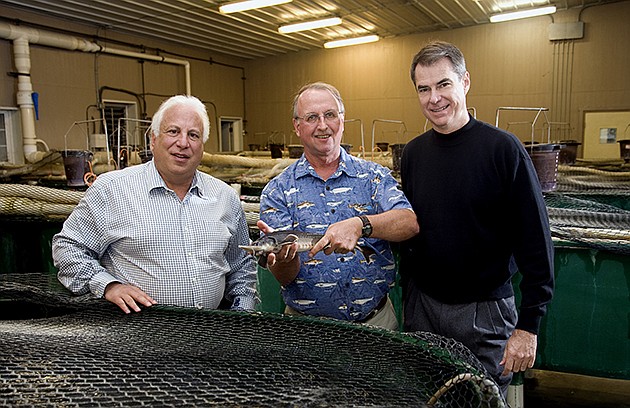- November 24, 2024
-
-
Loading

Loading

A wide-ranging and successful business career has taken Chris Cogan everywhere from water pollution control to software design to venture capital.
He started his first company at 18. He later ran a business that provided design, purchasing and construction management for hotels, a company that grew to $100 million in sales in five years. One of his most recent stops was Morgan Stanley, where he oversaw day-to-day operations of a Sarasota-based investment and wealth management office with more than $600 million in assets under management.
But Cogan thinks his latest business venture, a foray into the nascent sustainable food industry, could be one of his biggest hits ever. His entry is Healthy Earth, a company run out of the Sarasota-based venture capital firm he helps oversee, Southeast Venture Holdings, or Seven Holdings. “We see the dynamics changing in the food industry,” says Cogan. “We think it's equivalent to a sustainable food revolution.”
Seven Holdings and Healthy Earth officials took their first shot in the revolution late last year, when they bought a Siberian sturgeon and caviar operation from Mote Marine Laboratory in Sarasota. The operation, on 8 acres on a rural part of Fruitville Road east of Interstate 75, is one of the largest facilities in the country that harvests and packages caviar eggs in-house. Mote's caviar sells for about $55 an ounce, and is sold in Costco and Whole Foods, among other locations.
The facility, the Sturgeon Aquaculture Program at Mote, has struggled for years to make a profit. One obstacle is it costs about $500,000 a year to operate the facility. Another hurdle was a 2006 fire destroyed around one-third of its caviar-producing sturgeon stock, in addition to eight years and $3 million in research work.
But Cogan says Seven Holdings didn't buy the caviar operation for its profit margins. It bought it for its systems, processes, talent and ability to quickly expand into new areas of aquaculture and sustainable fishing research. Mote and Seven Holdings officials decline to disclose the sale price of the facility, but Cogan calls it significant. The deal includes an agreement for Seven Holdings to invest in Mote's land-based and freshwater aquaculture research that takes place inside the 200-acre aquaculture park that houses the caviar operation. “We are ready to make a seven-figure investment into the operation,” Cogan says.
The Seven Holdings and Healthy Earth sustainable long-range vision goes past Mote, both in geography and scope. The idea behind Healthy Earth, Cogan says, is to develop a large-scale commercial sustainable food operation that makes and sells everything from vegetables to seafood. That means using agriculture and aquaculture practices that use current resources without compromising future needs.
Seven Holdings has invested in a portfolio of life-sciences companies, some of which are in sustainable food and related sectors. Seven Holdings also recently signed a partnership agreement with Anna Maria Fish Co., a sustainable fishing business run by prominent area restaurateur Ed Chiles.
Seven Holdings, finally, is supported by several sustainable food industry stars through its advisory board and venture partners. The list includes Whole Foods Chairman John Elstrott and Jeff Sedacca, president of the shrimp and aquaculture division at supply firm National Fish & Seafood Inc. More Seven Holdings star power comes from its managing director of investor relations: former Florida Secretary of State Katherine Harris, who also served in the Florida Senate and U.S. House of Representatives.
One overall challenge, says Cogan, is to make the sustainable venture last the team needs to build something with size and a brand that resonates with restaurant chains and food supply companies. But since sustainable food is such a new concept, there are few examples of successful businesses to emulate, at least not in this country. “The sustainable food sector is growing by leaps and bounds, but the United States isn't in the game,” Cogan says. “It's critical for us to gain scale.”
Follow Mark Gordon on Twitter @markigordon